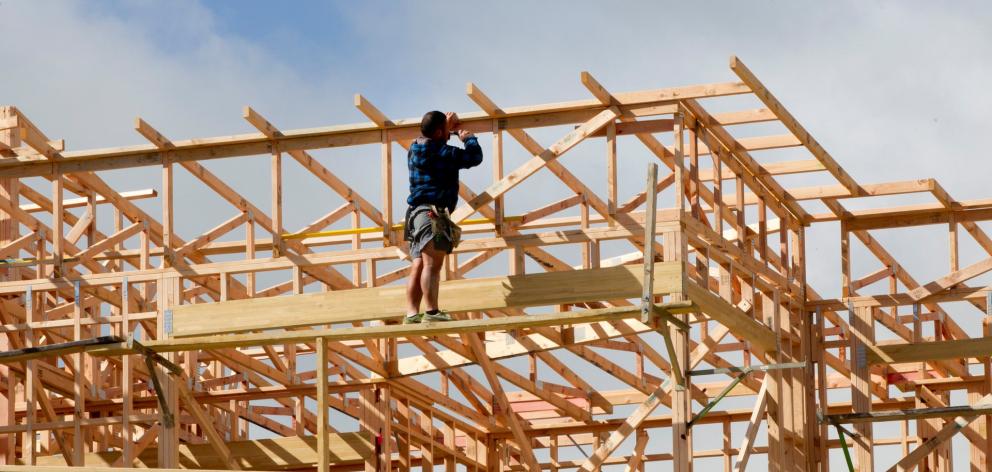
That is because decisions tend to badly affect someone somewhere, or they are seen as against what is right.
When government ministries are made to trim budgets and staff this either affects programmes or is portrayed as an attack on, say, Pacific peoples or the disabled.
A move like the option of returning decisions on Māori wards to local voters prompts outrage.
The abolition of Labour’s Three Waters plan raises all sorts of issues and a mixture of support, opposition and anxiety.
Against the grain, one announcement late last week was greeted positively, albeit with caveats. For once, there was little opposition from Labour, the Greens or Te Pāti Māori.
The government said it is shaking up construction industry rules intending to make building cheaper. Building product standards from trusted countries would be recognised if they are the same or higher than New Zealand standards. This would allow building products to be certified through reputable overseas certification schemes.
Building and Construction Minister Chris Penk gave the example of Australia’s plumbing and drainage WaterMark scheme. It could provide quick access to 200,000 products.
The high cost of New Zealand building materials and the monopolies or near-monopolies are infamous. The Commerce Commission’s market study on residential supplies, asked for by the last government and completed in December 2022, recommended making it easier for building supplies to be approved and for more product substitutions to be allowed.
The 2022 Gib board crisis was a stark example of problems and issues.
New Zealand should have moved earlier on this matter, such is its importance and the economic and social damage and drag caused by high building and high house prices.
This tiny country should piggyback overseas experts rather than bolster its own examination, certification and approval bureaucracy. That bureaucracy is likely to emphasise its own importance, that being the nature of such beasts.
The same phenomenon as well as a "we know best" attitude slowed parts of the response to Covid. International vaccine approvals from trusted countries had to be followed up by too-long Medsafe processes. Fortunately, this was partly ameliorated by "provisional" approvals.
Over the years, standards in some areas have sensibly been more aligned with Australia’s. More of this needs to happen.
No-one is expecting more competitive pricing to occur quickly. This policy must be fleshed out and details worked through. The implementation will have to be done well, as the building industry has said.

It also needs to be recognised that New Zealand has environments different from those overseas, notably for climates and earthquake risks.
The fact the government plans to consult with the construction industry on products and jurisdictions is positive. And approvals for materials and building systems need to be consistently applied across the country.
Even the threat of cheaper overseas supplies might help keep local prices a little more competitive.
Overseas products would also have to become readily available through New Zealand supply chains if cheaper materials were to have wide distribution. Designers and builders would need to be prepared to not just use the familiar products and the easy way out.
Changes might do giant Fletcher Building some good. Operating in a more competitive market could sharpen its focus, management and efficiency.
Labour started the process and is now saying it is vital to take the time to get it right.
Indeed. The relatively easy part was making the announcement. Now comes the complex work of putting it into practice.
Even if changes occur in stages and material costs are not curbed dramatically, it is worth pursuing every safe way that building expenses can be trimmed.












